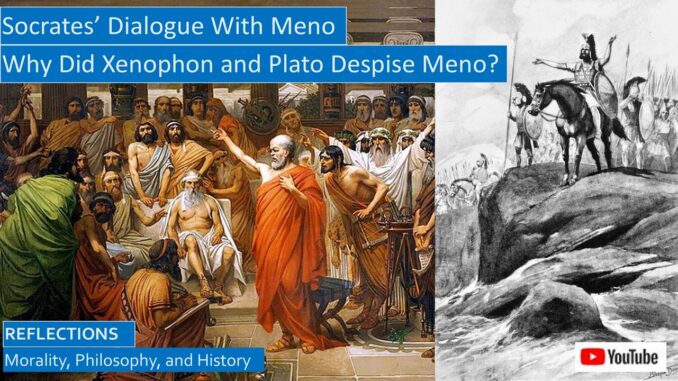
Why did Xenophon despise Meno?
Why was Meno murdered by the Persians, while Xenophon survived?
How did Xenophon’s Anabasis, his account of the Persian Expedition, influence Plato when he composed his Meno Socratic dialogue?
Were the Platonic Dialogues commentaries on the Peloponnesian Wars, and the events that followed these famed wars?
How did the Trial and Execution of Socrates influence the later Platonic dialogues?
YouTube video for this blog: https://youtu.be/KiBFL5NAl5A
PLATONIC DIALOGUES AND THE PELOPONNESIAN WARS
Many of the Platonic dialogues were a commentary on the recently concluded Peloponnesian Wars that, like the two modern World Wars, were fought over several generations, and much of the population, soldiers and civilians, supported the war effort. Likewise, many of the movies, television programs, and books created in the decades after World War II reflected the deeply traumatic experiences of these devastating wars.
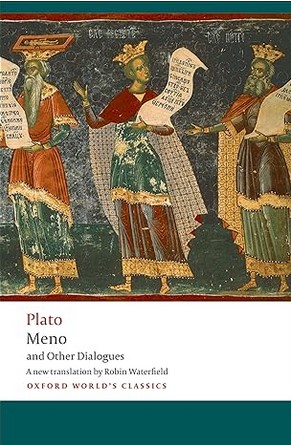
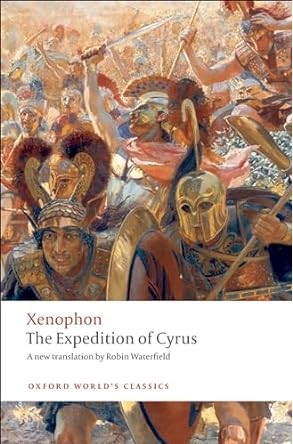
The civil strife immediately after the Peloponnesian Wars, the time of the Thirty Tyrants, was especially traumatic. Lysander, the Spartan general who defeated the Athenians, placed the Thirty Tyrants drawn from the Athenian aristocracy in power. Some scholars have compared the bloody excesses of these tyrants to the terror of the French Revolution more than a millennia later. However, the Thirty Tyrants were motivated by greed and not ideology, as they terrorized and executed many of their fellow aristocrats to seize their property.
Before we read a Platonic dialogue, we should inquire about the history of the characters. For example, in both Plato’s and Xenophon’s Symposium, several characters were allied with the Thirty Tyrants, while several were victims. This is also true for Socrates’ dialogue with Meno.
Xenophon and Plato, Socratic Dialogue, Symposium, Romantic and Carnal Love, Part 1
https://seekingvirtueandwisdom.com/xenophon-and-plato-socratic-dialogue-symposium-romantic-and-carnal-love-part-1/
https://youtu.be/OIe5pn2S1Ls
Xenophon and Plato, Socratic Dialogue, Symposium, Divine and Noble Love, Part 2
https://seekingvirtueandwisdom.com/xenophon-and-plato-socratic-dialogue-symposium-divine-and-noble-love-part-2/
https://youtu.be/z6X3pwVTdrc
Spartan Lysander Shows Mercy on Athens, Ending the Peloponnesian Wars
https://seekingvirtueandwisdom.com/spartan-lysander-shows-mercy-on-athens-ending-the-peloponnesian-wars/
https://youtu.be/giNzqNoOH3Y
Thirty Tyrants Ruling Athens After Spartan Victory in the Peloponnesian Wars
https://seekingvirtueandwisdom.com/thirty-tyrants-ruling-athens-after-spartan-victory-in-the-peloponnesian-wars/
https://youtu.be/rrcwdHyvIEg
HOW MENO DIED, ENDANGERING XENOPHON AND THE OTHER GREEKS
Why does Socrates respond to Meno’s opening question with a long, rambling, testy response? Let us first learn what most Greeks already knew about our other main character, Meno.
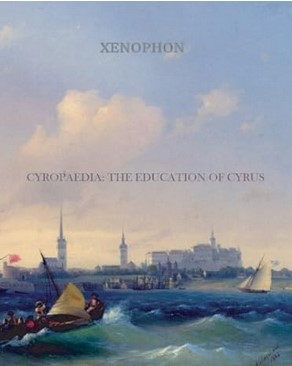
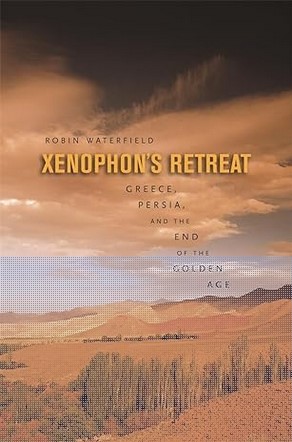
Meno was too young to participate in the Peloponnesian Wars and the struggle of the Thirty Tyrants. But Meno did play a leading role in the Anabasis, also known as the Persian expedition. Although he was only in his early twenties, Meno was a leading mercenary general serving under Prince Cyrus the Younger, who had supported Sparta during the last phase of the war, when he unsuccessfully tried to overthrow his brother Artaxerxes II to claim the Persian throne.
Xenophon wrote the ancient best-seller Anabasis, which was his eyewitness account of how the ten thousand-strong Greek mercenary army marched under Prince Cyrus to challenge his brother for the Persian throne. Although the Greek hoplites prevailed in the battle with the Persians, they were stranded in enemy territory when Cyrus was slain on the battlefield. The Greeks then marched north through Persia to the Greek colonies on the shores of the Black Sea. Plato, as did many Greeks, likely heard or read Xenophon’s Anabasis before he composed his dialogue with Meno. Xenophon recalls that Socrates blessed his star student’s participation in Cyrus’ adventure with great reluctance.[1]
Xenophon despised Meno, suspecting that Meno was conspiring with the Persians. Meno died due to Persian treachery.
Xenophon’s Anabasis: The Persian Expedition, an Ancient Adventure Story
https://seekingvirtueandwisdom.com/xenophons-anabasis-the-persian-expedition-an-ancient-adventure-story/
https://youtu.be/DBG3JvyLP1E
The Historian Robin Waterfield Reflects on Xenophon’s Anabasis in Persia, and Other Greco-Persian Conflicts
https://seekingvirtueandwisdom.com/the-historian-robin-waterfield-reflects-on-xenophons-anabasis-in-persia-and-other-greco-persian-conflicts/
https://youtu.be/sOZAKFfEnKw
Xenophon, in Robin Waterfield’s translation, bitterly recalls his suspicions:
“It was obvious that Meno longed to be rich; he wanted military command because it would bring him a greater share of the spoils, he wanted prestige because it would help him increase his wealth, and he wanted to be on good terms with the most powerful men because then he could avoid being punished for his crimes.”
Xenophon continues, “Meno thought that the quickest way for him to achieve his goals was to use perjury, lies, and deceit. In his opinion, openness and truthfulness were synonyms for stupidity. He evidently felt no affection for anyone, and if he claimed to be somebody’s friend it soon became clear that he was trying to sabotage him.”
“Meno was frightened of people he found breaking promises and committing crimes, because he regarded them as well protected, and he tried to exploit people who were moral and honest because he regarded them as weak.”[2]
Why did Xenophon despise Meno so deeply? The Spartans, Corinthians, and other allies had won the Peloponnesian Wars against Athens and her allies with generous financial support from the Persians supplied by Prince Cyrus the Younger. Historians speculate that Cyrus would likely have been eliminated by his brother after their mother passed, so he had no choice but to attempt to usurp the throne.
In return, many Spartans supported Cyrus in his quest. The general Clearchus commanded a large Spartan contingent, while Meno commanded a smaller contingent from Thessaly. Meno was only about twenty when appointed general, and was physically attractive and had many lovers, which likely did not endear him to Xenophon. Xenophon and other Greek hoplites from Athens and other Greek city-states also signed up for this well-paid mercenary adventure.
Although the commanding general Clearchus was favored by Cyrus, the Greek forces also included hoplites from many Greek city-states, including Xenophon from Athens. As was the case in the Iliad many centuries before, Clearchus was recognized as the overall commander more by acclamation than by appointment.
Meno conspired with Clearchus and Cyrus in misleading the Greek forces about their eventual destination and purpose, it is doubtful that a majority of these Greeks would have assented to a march of a thousand miles to the outskirts of the capital of Babylon to engage the ruling King of Persia. This caused tension in the Greek forces, on the eve of the battle Meno’s soldiers spontaneously threw axes and stones at Clearchus as he passed by their camp. Xenophon commented that Meno did not adequately discipline and restrain the soldiers in his unit.[3]
Cyrus’ Persian forces and the Greek hoplite warriors won the battle but lost the conflict. Cyrus the Younger and his bodyguard regiment, using tactics later successfully employed by Alexander the Great, charged directly at his brother Artaxerxes. Cyrus was surrounded and died a soldier’s death. The main difference was that Cyrus the Younger did not have the battlefield experience of either Alexander the Great, or Cyrus the Great, the founder of the Persian Empire.
Xenophon thought highly of Cyrus the Younger, and his portrayal of Cyrus the Great likely mirrored his opinion of the potential of Cyrus the Younger. Perhaps this portrayal was Xenophon’s response to Plato’s Republic, extolling the virtues of a beneficent monarchy.
Xenophon’s Cyropaedia, Biography of Cyrus the Great, King of Persia
https://seekingvirtueandwisdom.com/xenophons-cyropaedia-biography-of-cyrus-the-great-king-of-persia/
https://youtu.be/E4BFSIpHHGk
Xenophon’s Cyropaedia, Moral Sayings of Cyrus the Great, King of Persia
https://seekingvirtueandwisdom.com/xenophons-cyropaedia-moral-sayings-of-cyrus-the-great-king-of-persia/
https://youtu.be/Y3ULbvPEmik
After the battle, the Persians were reluctant to attack the Greek force of ten thousand armed hoplites, instead offering them safe passage north to the Greek colonies bordering the Black Sea. Except that it wasn’t quite safe, as the Persian forces of the Greek satrap Tissaphernes trailed the Greeks, sporadically harassing them.
In the Peloponnesian Wars, Tissaphernes had originally supported Alcibiades, who was elected general by the Athenian naval forces in the Aegean Sea, and who likely would have won the war for Athens had his political enemies not succeeded in having him exiled. When the Persian King decided to switch his support to the Spartans, he appointed his son Cyrus the Younger to run the satrapy, sidelining Tissaphernes. Prince Cyrus the Younger enthusiastically funded the Spartan war effort, leading to their eventual victory.[4]
Given this troubled history, and the harassment by Persian forces, Clearchus and Meno should have known better than to trust the peace initiatives of Tissaphernes when he invited the Greek generals and commanders to a peace banquet.
Comeback of Alcibiades in Peloponnesian War, according to Plutarch, Thucydides, and Xenophon
https://seekingvirtueandwisdom.com/comeback-of-alcibiades-in-peloponnesian-war-according-to-plutarch-thucydides-and-xenophon/
https://youtu.be/b7QLp1HrOMs
We will let Xenophon tell the story:
“Some of the soldiers began to argue that Tissaphernes was not to be trusted; but Clearchus was strongly insistent and eventually got them to agree that five generals,” including Meno, “and twenty company commanders could go.”
“When they reached the entrance to Tissaphernes’ tent, the generals,” including Meno, “were invited inside, while the company commanders waited by the entrance. A short while later, at a single signal, those who were inside were seized and those who were outside were murdered. Then some of the barbarian horsemen rode across the plain, killing every Greek they came across, whether free man or slave.”
The now leaderless Greek forces were initially in a quandary, but they quickly elected new leaders to replace their slain leaders. Xenophon was elected as overall commander after he gave a rousing speech, inspiring them to march through hostile territory to reach the Greek southern shore of the Black Sea. The Greek forces promised the local inhabitants of the lands they crossed that they would spare their lives if they, in return, allowed them to take provisions sufficient to feed their soldiers.[5]
Xenophon’s inspiring tale of this unlikely March to the Sea through the heart of Persia, through Armenia, and through lands controlled by tribes that had resisted Persian efforts to conquer them, was recorded in his Anabasis, which was one of the most popular works read aloud in Greek festivals and would later inspire Alexander the Great. He and his father Philip reasoned that if these Greeks could successfully march out of the heart of Persia to safety, that a determined Greek hoplite army could defeat the armies of the wealthy Persian Empire.
IMPORTANCE OF TRANSLATIONS: OPENING PARAGRAPH OF MENO
Although most scholars doubt that a dialogue between Socrates and Meno actually happened, Robin Waterfield, our translator, speculates that Meno could have stopped in Athens on his way to join Cyrus’ forces in Ionia.[6] Although Plato’s Socrates’ responses to Meno in the dialogue were somewhat testy, he was not hostile to this Meno who endangered the lives of both Xenophon and the Ten Thousand Greek hoplites who would be stranded a thousand miles from home in the heart of Persia. Perhaps this dialogue explores what Meno could have learned from Socrates to prevent this tragedy. That was Socrates’ main goal: to strengthen the moral character of his students so they could become wiser and more effective leaders of the Greek polis.
Translations are critical in transmitting the true meaning of the text, and we prefer Robin Waterfield’s translations. Benjamin Jowett’s translation is the traditional translation. His rendering of Meno’s opening question is: “Can you tell me, Socrates, whether virtue is acquired by teaching or by practice; or if neither by teaching nor practice, then whether it comes to man by nature, or in what other way?”[7]
In Robin Waterfield’s translation, Meno inquires: “I wonder if you can tell me, Socrates, whether excellence is teachable or, if not teachable, at least a product of habituation. Or perhaps it isn’t the kind of thing one can practice or learn, but is a natural human endowment. If not, how do people become good?”
Many of the Greek philosophical terms are difficult to translate, especially since the grammar differs so much between English and Greek. But these differing translations shade the meaning of the Greek differently, as Waterfield’s footnotes reveal that he is referring to virtuous excellence. This emphasizes the stoic importance of developing the good habits that are the result of virtuous strivings, and here we are using the term stoic in a generic sense, as we explain in our introductory reflection.
Our Reflections on Morality, Philosophy, and History: Ancient and Modern Classics
http://www.seekingvirtueandwisdom.com/our-philosophy-for-this-blog-reflections-on-ancient-and-modern-classics/
https://youtu.be/Si0TsO5bNr0
Are some people more virtuous by temperament? Or is virtuous excellence learned? Robin Waterfield seeks to draw out the true meaning of the text by adding a final emphasizing question: If not, how do people become good?
Why didn’t Robin Waterfield translate the last phrase as: How do people become virtuous? In his footnotes, Robin Waterfield indicates that he considers excellence to be an expression of virtue, perhaps he considers it to be an enhanced virtue, enhanced above all virtues.
SOCRATES RESPONDS TO MENO AT LENGTH
Plato had likely read or heard Xenophon’s Anabasis before penning the Socratic dialogue with Meno, as did most Greeks who read or heard Plato’s Meno. Most Greeks knew about Xenophon’s description of Meno’s conniving incompetence that nearly led to the death of Xenophon and his ten thousand Greek compatriots at the hand of the Persians.
In his response, Socrates, like Xenophon, immediately responds to Meno and his wealth: “Meno, in the past the Thessalians were famous and admired throughout the Greek world for their skill with horses and for their wealth,” which he follows up with some wishful thinking: “but I get the impression that now the Thessalians are admired for their knowledge too,” especially “your friend Aristippus” from Larisa.
Both Xenophon and Socrates say that Aristippus was one of Meno’s lovers, but they are likely referring to the obscure Aristippus of Larisa,[8] a student of the Sophist Gorgias, not the fellow student of Socrates, Aristippus of Cyrene, the Cyrenaic hedonistic philosopher[9] who may have influenced Epicurus.
Was Epicurus Really a Stoic-Lite Philosopher? Were all Epicureans hedonists?
http://www.seekingvirtueandwisdom.com/was-epicurus-really-a-stoic-lite-philosopher-were-all-epicureans-hedonists/
Epicurus, Aristippus, and Lucretius: History of Epicurean Philosophy
http://www.seekingvirtueandwisdom.com/epicurus-aristippus-and-lucretius-history-of-epicurean-philosophy/
Epicurus, Aristippus, and Lucretius: Were the Epicureans Stoic-Lite Philosophers?
https://youtu.be/49Qv3Be86Jw
Socrates ironically credits the Sophist Gorgias, who has his own dialogue, with furthering wisdom among leading Thessalians, which is doubly ironic, since Socrates was executed for corrupting the youth of Athens. He was falsely accused of Sophism, misguiding his students.
Socrates characteristically claims that he has no idea what excellence is, and asks Meno to help him define excellence, and closes his response with another dig at Meno when he asks him: “Do you think that someone who is utterly ignorant of who Meno is could know whether he is good-looking or rich or well-born,” or not? Does Socrates imply that this is what Meno really thinks is the essence of excellence? We could certainly inquire whether this is what both the ancient Greek and our modern society believes what demonstrates excellence.
How do you define excellence? Meno begins by positing that masculine excellence is shown by men who “capably manage the affairs of their community,” while “helping his friends, harming his enemies, and avoiding suffering any harm himself.” Feminine excellence is shown by women who “are good housekeepers” who “obey their husbands.” Meno adds that “excellence depends on our walk of life and our age.”
After some give and take, Socrates posits that what is common to men and women, and all people, is that excellence requires both “justice and self-control,” and Meno agrees.
Socrates asks: Is justice excellence? Or is justice one of many excellences? Meno responds that there are many excellences, including courage, self-control, wisdom, and nobility. Socrates asks: What is the one excellence common to all these excellences?
Whenever I read the Platonic dialogues, I feel the urge to suggest to Socrates a simple answer to these life questions: That the one excellence Socrates seeks is the two-fold Love of God and neighbor. And even if you are an atheist, you can interpret this as the love of the good and your neighbor.
Hillel and Jesus, Reflections on Rabbi Telushkin’s Observations
http://www.seekingvirtueandwisdom.com/hillel-and-jesus-reflections/
Comparing Hillel and Shammai to Jesus
http://www.seekingvirtueandwisdom.com/comparing-hillel-and-shammai-to-jesus/
More Stories and Sayings of Hillel and Shammai
http://www.seekingvirtueandwisdom.com/more-stories-and-sayings-of-hillel-and-shammai/
Jesus, Hillel, and Shammai, Loving God and Neighbor
https://youtu.be/ygxn2qqGnOI
St Augustine: On Christian Teaching, aka On Christian Doctrine, How To Read Scripture
http://www.seekingvirtueandwisdom.com/st-augustine-on-christian-teaching-how-to-read-scripture/
https://youtu.be/uQCnAJMPoos
Summary of CS Lewis’ Mere Christianity, WWII Ecumenical Broadcast: Morality Not Polemics
https://seekingvirtueandwisdom.com/summary-of-cs-lewis-mere-christianity-wwii-ecumenical-broadcast-morality-not-polemics/
https://youtu.be/6-Hc4X0NN8k
Summary of St Augustine’s Confessions of Faith and Repentance
https://seekingvirtueandwisdom.com/summary-of-st-augustines-confessions-of-faith-and-repentance/
https://youtu.be/sIpx5qJMGvw
After several pages of Socratic questioning, Meno finally answers that “excellence is desiring fine things, and having” the power “and ability to procure them for oneself.”
By this shallow answer, does Socrates seek to reveal the weakness of Meno’s moral character that would later endanger the lives of Xenophon and Ten Thousand Greek soldiers? This is like saying that virtuous excellence is satisfied greed. Socrates seeks to soften his response, Meno agrees he means that excellence is in desiring GOOD things.
In his further questioning of Meno: Is Socrates repeating the suspicions of Xenophon that he mainly seeks wealth by catering to the corrupt Persians? Socrates asks: “Do you use the term GOOD for things like health and wealth?”
Meno answers: “Yes, I mean not just getting gold and silver, but acquiring positions of prestige and political authority as well.”
Socrates responds, “According to Meno, the hereditary guest-friend of the Great King” of Persia, “excellence is procuring gold and silver,” asking him: “Would you still call it excellence even if one gained these things unjustly?”
Note that Socrates is referring to Meno as the guest-friend of the King of Persia, is he being ironic? Guest-friends were the informal diplomats of ancient Greece, whenever someone had business in a certain city, he would stay in the house of his guest-friend in that city, sometimes even during times of war and strife. But since the King of Persia never traveled in Greece without his armies, it is highly unlikely he would have any Greek guest-friends.
Meno is compelled to disagree, and after some back and forth, Meno, like many others trapped by Socrates, complains how Socrates seeks to bewilder him.[10]
Socrates then repeated that he did not know what excellence was, but then suggested that, since the “soul is immortal and has been incarnated many times,” “there is nothing that hasn’t been learned.” According to Socrates, Any man can recover what his soul has remembered from a prior life.
When Meno is skeptical, Socrates says he can prove that even Meno’s slave can remember the solution to a geometry puzzle he remembers from a prior life. IMHO, what Socrates really proves is that, with the proper leading questions, he can coax most anybody into remembering most anything.
Socrates and Plato were influenced by the teachings of the pre-Socratic Ionian philosopher Pythagoras. Their belief in reincarnation, or transmigration of souls, likely originated in the Indian subcontinent. His followers formed religious ascetic communities.
YouTube Pythagoras
The Pythagoreans studied mathematics and geometry to gain a glimpse of the supernatural. This belief may have contributed to Plato’s concept of ideal forms, which the Christian NeoPlatonists explain is the mind of God.
How can this be? The lifeless boring manner in which most of us learned mathematics in school blinds us to the true elegance of mathematics. A brief foray into the puzzling world of recreational mathematics will demonstrate how mathematics can truly give us a glimpse into the mysterious cosmos that pervades our reality.
YouTube: Mathematics, Glimpse Into the Eternal, Plato, Meno, and Pythagoras
We also discovered that our favorite translator and commentator, Robin Waterfield, translated Iamblichus’ work on the Theology of Arithmetic. We are curious why Robin Waterfield was curious about this rather arcane work. Perhaps it is an ancient version of Martin Gardner’s Annotated Alice in Wonderland. If we find this interesting, we will cut a video on this sometime in 2025.
YouTube: Iamblichus, Theology of Arithmetic
After this prolonged discussion, Socrates once again proclaims he has no idea what excellence is, and he says he wants Meno’s assistance in his inquiry. Socrates proclaims, “As we attempt to find out what excellence is, are we taking it to be something teachable or a natural endowment?” “How do people come to have excellence?” Socrates further observes: “If excellence is a kind of knowledge, it evidently follows that it will be teachable.” [11] What definitely follows is many Athenians found Socrates a bit irritating.
SOCRATES QUESTIONS HIS FUTURE PROSECUTOR
Anytus, who is Meno’s Athenian guest-friend with whom he is staying, enters the gymnasium and sits next to Meno and Socrates. Socrates states that Anytus was “the son of Anthemion, a man of property and good sense, who didn’t get his money out of the blue or as a gift,” “but earned it by his own brains and hard work.”
Anytus was an Athenian general serving during the Peloponnesian Wars who was possibly a lover of Alcibiades. After the war, he was a leading democratic opponent of the Thirty Tyrants. Anytus was also one of the prosecutors of Socrates during his trial that condemned him to death by hemlock.[12]
Plato has Socrates mention Anytus in passing in his defense speech in his Apology, but Xenophon remembers more: “Socrates is also said to have spotted Anytus passing by and to have said: ‘Well, here is a man who is swaggering as if he had achieved something important and excellent: he is having me put to death because when I saw that he was under consideration by the States for the most important offices, I suggested that he ought not to educate his son in a tannery,’” which was the family business. “He is in a bad way because he apparently doesn’t realize that, of the two of us, the one whose achievements are the more beneficial and excellent is the victor, and will remain so for all time.”
Xenophon has Socrates predicting a bad end for Anytus and his son. “My brief acquaintance with Anytus’ son led me to believe that he was a person of some caliber. My prediction is that he will not remain in the servile occupation his father has arranged for him; but because there is no one of principle to take him in hand, he will succumb to some base motivation and make considerable progress as a degenerate.”
Xenophon notes that “this prediction was quite right: the young man became an alcoholic, spent his days as well as his nights drinking, and finally became utterly worthless to his country, his friends, and himself. So, Anytus, even though dead, has acquired a bad reputation: for bringing up his son badly as well as for his heartlessness.”[13]
Since Plato and Xenophon were both students of Socrates, and since most scholars agree that Plato’s and Xenophon’s Apology, or accounts of the trial of Socrates, preceded Plato’s Meno dialogue, we are fairly certain that Plato was aware of Socrates’ comments on Anytus. Socrates likely was unable to confront Anytus before his trial, but Plato gives him that opportunity in Meno’s dialogue.
In real life, Aristophanes in his play, The Clouds, ridicules Socrates as an absent-minded professor, or Sophist, charging his students for worthless lessons, teaching them fancy speaking through rhetoric so they can cheat their way to success, and Anytus likewise accuses Socrates of being a Sophist who corrupts the youth.
Trial of Socrates in Apology and Crito, Blog 1
http://www.seekingvirtueandwisdom.com/trial-of-socrates-in-apology-and-crito-blog-1/
Sentencing and Execution of Socrates in Apology and Crito, Blog 2
http://www.seekingvirtueandwisdom.com/sentencing-and-execution-of-socrates-in-apology-and-crito-blog-2/
Pondering the Death of Socrates in Xenophon, Plato, and Aristophanes
http://www.seekingvirtueandwisdom.com/pondering-the-death-of-socrates-in-xenophon-plato-and-aristophanes/
https://youtu.be/Mip1vgRKH1E
The Stoic Socrates of Xenophon
http://www.seekingvirtueandwisdom.com/the-stoic-socrates-of-xenophon/
https://youtu.be/LWfoHhtNY8I
Socrates, Aristophanes and The Clouds, Capitol Riots, Georgia, and the Big Lie
http://www.seekingvirtueandwisdom.com/aristophanes-socrates-georgia-and-the-capital-riots/
https://youtu.be/Pn7wYntimjo
Plato: Euthyphro, Who Won’t Listen
http://www.seekingvirtueandwisdom.com/plato-euthyphro-who-wont-listen/
https://youtu.be/etK0eIpYPPg
Socrates tells Anytus that Meno wants to “gain this skill, the excellence which enables people to manage their households and their communities well, and to care for their parents.” He asks Anytus: Should Meno go “to those who undertake to teach excellence and who declare their availability for any Greek who wants to learn from them, as long as he pays the ordained fee they charge?”
In contrast, Socrates repeatedly says that he does not charge for his lessons. Anytus asks Socrates who this would be, and when he says they are Sophists, Anytus proclaims, “It is plain to see that Sophists do nothing but corrupt and harm those who associate with them.” Here Plato implies that Anytus falsely charged Socrates of being a Sophist at his trial.
Socrates asks Anytus at length, and we summarize: What about Protagoras? Cobblers and sculptors charge for their shoes and statutes, why can’t Sophists charge their students? He points out that Protagoras has been teaching in Athens for forty years! Socrates challenges Anytus: “Has any of the Sophists done you wrong, Anytus? Why are you so hostile towards them?”
Anytus not only has no real reason for his hostility, he readily admits that he is totally ignorant of what any of the Sophists teach their students. Socrates senses that if Anytus condemns all Sophists without knowing what they teach, then he will be condemned as well. He asks Anytus who else should teach the youth of Athens, if not the Sophists, and Anytus has no answer, except that he is becoming quite angry at Socrates. He doesn’t want to listen to Socrates either.
Platonic Dialogue: Protagoras and Socrates Debate: Can Virtue Be Taught?
https://seekingvirtueandwisdom.com/platonic-dialogue-protagoras-and-socrates-debate-can-virtue-be-taught/
https://youtu.be/dK5lgoPGKXc
The Sophist Protagoras in Plato’s Dialogues, His Biography and Fragments of His Works
https://seekingvirtueandwisdom.com/the-sophist-protagoras-in-platos-dialogues-his-biography-and-fragments-of-his-works/
https://youtu.be/fbGAV9ky8-Q
Anytus leaves in a huff, but hangs out within sight at the gymnasium, saying: “You don’t seem to have any qualms about running people down, Socrates. If you want my advice, I would recommend caution. You should appreciate that, as easy as it may be to do people harm or good elsewhere, here in Athens it is particularly easy. But I think you’re already aware of this.” Anytus is clearly the type of person who, in his anger, would be eager to sign on to prosecute Socrates.
Socrates says to Meno about his future prosecutor: “It looks as if Anytus is angry, which is hardly surprising.” “If he ever comes to realize what it is to speak badly of someone, he’ll stop being angry, but he lacks that insight at the moment.” How true this would later be, when Socrates is falsely accused and executed for impiety, for corrupting the youth of Athens.
SOCRATES CONTINUES HIS DIALOGUE WITH MENO
Socrates then asks Meno whether the Sophists teach their students excellence, and he frankly answers that some say they do, and others, like Gorgias, simply sought to teach their students rhetoric, so they could become better speakers.[14]
Socrates tells Meno that he learned much from the Sophist Prodicus, who was the source of Xenophon’s moral tale where Hercules is compelled to choose between the ladies of virtue and vice. Socrates learned from Prodicus the importance of the correct use of words, being mindful of their definitions.[15] None of his writings survive, except for scattered quotations by Plato and other ancient authors.
St Justin Martyr’s Second Apology to Senate, Quoting Xenophon’s Socrates, Ladies Virtue and Vice
http://www.seekingvirtueandwisdom.com/justin-martyr-second-apology-and-socrates/
https://youtu.be/-E3r8Z4IE1c
The Jesuit scholar Copleston notes that Prodicus was known for “his theory on the origin of religion. He held that in the beginning men worshipped as gods the sun, moon, rivers, lakes, fruits, etc., or the things which were useful to them and gave them food.” “This primitive stage was followed by another, in which the inventors of various arts: agriculture, viniculture, metalwork, etc., were worshipped as the gods Demeter, Dionysus, Hephaestus, etc. On this view of religion would, he thought, be superfluous, and for that he seems to have got into trouble with the authorities in Athens.”[16]
Socrates and Meno agree that “recognizing how good men become good men is elusive.” Socrates admits that “true belief is just as good a guide as knowledge, when it comes to guaranteeing correctness of action.” He quotes from the poet Theognis:
“Never would a bad son be born to a good father,
As long as he hearkened to words of wisdom.
But never by teaching will you make a bad man good.”
Poor Socrates, he endlessly quizzes the citizens of Athens, challenging them in the marketplace, searching for an eager soul and nimble intellect with whom he can dialogue, but these Socratic dialogues are really monologues, with Socrates pushing and pulling his interlocuters: Do you think this? Do you think that? Didn’t you just contradict yourself?
Socrates asks, in succession, “Is true belief just as good a guide as knowledge?”
“What if true beliefs escape from the human soul?”
“Can we anchor true beliefs with reason, or by recollection?”
“Are knowledge or true beliefs natural human endowments?”
“Is excellence teachable if it is knowledge?”
“If excellence were teachable, would it be knowledge?”
Socrates concludes, or rather ends without conclusion, his monologous dialogue with: “So, Meno, our argument has led us to suppose that the excellence of good people comes to them as a dispensation awarded by the gods.”
Ironically, Socrates ends the dialogue by charging Meno that “it is up to you to try to win your guest-friend Anytus here over to the point of view of which you’ve become convinced, so that he’ll be more even-tempered. After all, if you do manage to convince him, you will be doing the people of Athens a favor too.”[17]
We know, as did those ancient Greeks who read or heard this dialogue, that not only did Meno fail to win over Anytus to virtuous excellence, since he later would become Socrates’ prosecutor, but Meno himself did not take learn this lesson of virtuous excellence, since he was led astray by his greed and gullibility, which led him to his death by the duplicitous Persians.
REFLECTIONS ON THE PELOPONNESIAN WARS
Originally, we thought that our series on the Peloponnesian Wars would span eight reflections, but the series spanned at least a dozen reflections, plus reflections on Sparta and Spartan women, and Xenophon’s Anabasis.
We encourage you to explore these dozen reflections, and we also have a summary reflection of the Peloponnesian Wars.
Summary of the Peloponnesian Wars Between Athens and Sparta
https://seekingvirtueandwisdom.com/summary-of-the-peloponnesian-wars-between-athens-and-sparta/
https://youtu.be/SW9Zq4IiLF0
DISCUSSING THE SOURCES
Why do so many modern scholars deprecate Xenophon? We have demonstrated that you will miss much of Plato’s references to then current historical events if you do not read Xenophon’s Anabasis that tells us how Meno was massacred along with most of the Greek generals after Cyrus the Younger was defeated in Persia. The Anabasis was popular in both the ancient and medieval worlds, it is a great adventure story of how the Ten Thousand Athenian hoplites, led by Xenophon, marched and fought their way through a thousand miles of hostile Persian territory to find their way to Greek soil.
Xenophon’s Apology records Socrates’ opinion of Anytus, who would later join in as a prosecutor in his future trial. Also, Xenophon’s Cyropedia, or Education of Cyrus the Great, doubles as a biography of both Cyrus the Younger and his Great ancestor.
Many scholars say any translation will do, but I disagree, if you want to learn moral lessons from the Platonic dialogues, and from Xenophon’s works, then Robin Waterfield’s translations are superior, as are his introductions and his footnotes. Copleston did not discuss Meno in his analysis of Platonic philosophy, but he did mention Prodicus, one of the few Sophists admired by Socrates. We also have reflections on Book Revies of Greek history and philosophy.
Book and Lecture Reviews of Ancient Greek History and Philosophy
http://www.seekingvirtueandwisdom.com/book-and-lecture-reviews-of-ancient-greek-history-and-philosophy/
https://youtu.be/472aVKkPsk8
MENO’S PARADOX, AND PLATONIC SKEPTICISM
When I asked Dr Wikipedia about Meno’s dialogue, he said that many professors like to discuss the Meno Paradox mentioned by Meno, and summarized by Socrates:
“The claim is that it is impossible for a man to search either for what he knows or for what he doesn’t know: he wouldn’t be searching for what he knows, since he knows it, making the search unnecessary; and he can’t search for what he doesn’t know either, since he doesn’t even know what it is he is going to search for.”[18]
How did Plato’s Socrates propose to solve this conundrum? Soon after this paradox was discussed, Socrates sought to prove with the mathematic puzzle “solved” by the slave boy to prove that all knowledge was remembered from a prior incarnation.
Have professors over the centuries taken Plato too seriously? We know that such comments by Socrates led Plato’s Academy in succeeding generations to adopt an Academic Skepticism, claiming that the knowledge of things is impossible. They didn’t deny the existence of truth, they doubted that people could acquire the truth.[19] Scholars have long noted that many of Socrates” arguments have subtle flaws. Are these logical flaws actually puzzles for the astute reader? Is Socrates suggesting that language and understanding are imperfect, and that is impossible to make truly coherent arguments?
Personally, I do not understand why Meno’s Paradox is paradoxical. This reminds me of my first days as a CPA when I audited my first construction contractor, who usually had half a dozen contracts in process that lasted a few years from start to finish. The audit program said I had to examine the contract files, with no explanation. I asked the partner in charge of the engagement what I should be looking for in these contract files. He said he couldn’t tell me, but he reassured me that once I found what I was looking for, that I would know.
Why hasn’t Meno’s Paradox prevented mankind from its unimaginable scientific progress in the millennia following Plato? What truly distinguishes man from beast? Scientists once thought that tool use separated man from beast, until ravens, chimpanzees, and birds have been observed using simple tools to obtain food.[20]
Then scientists thought that the acquisition of language separated man from beast, until they successfully coaxed primates like the famous gorilla Koko to acquire a simple vocabulary of signs. But linguists noticed that Koko and other savant primates could use vocabulary words they were taught, although there is debate about that, but what could not do was create words themselves, they were incapable of complex grammar and tenses.[21] Perhaps human creativity, intuition, and abstract thinking overcome Meno’s Paradox and separates us from the beasts.
[1] Xenophon, Anabasis or Expedition of Cyrus, translated by Robin Waterfield (New York: Oxford University Press, 2005, originally 400’s BC), Book 3.1.1-12, p. 55-56.
[2] Xenophon, Anabasis or Expedition of Cyrus, Book 2.6.20-28, p. 53.
[3] Xenophon, Anabasis or Expedition of Cyrus, Book .1.5.7-12, pp. 17-18 and https://en.wikipedia.org/wiki/Meno_(general)
[4] https://en.wikipedia.org/wiki/Tissaphernes and the sources quoted in our reflections on the Comeback of Alcibiades.
[5] Xenophon, Anabasis or Expedition of Cyrus, Book .2.5.27-Book 3.2.1, pp. 48-61.
[6] Plato, Meno and Other Dialogues, translated by Robin Waterfield (New York: Oxford University Press, 2005, originally 400’s BC), Meno, 76e, p. 107, and footnote on pp. 171-172.
[7] Benjamin Jowett’s translation of Meno: http://classics.mit.edu/Plato/meno.html
[8] https://en.wikipedia.org/wiki/Aristippus_of_Larissa
[9] https://en.wikipedia.org/wiki/Aristippus
[10] Plato, Meno and Other Dialogues, Meno, 70a-81b, pp. 99-113.
[11] Plato, Meno and Other Dialogues, Meno, 81c-89d, pp. 114-128.
[12] https://en.wikipedia.org/wiki/Anytus
[13] Xenophon, Socrates’ Defense, included in Conversations of Socrates, translated by Hugh Tredennick and Robin Waterfield (New York: Penguin Books, 1990, originally 400’s BC), sections 29-31, pp. 48-49.
[14] Plato, Meno and Other Dialogues, Meno, 90a-96d, pp. 129-137.
[15] https://en.wikipedia.org/wiki/Prodicus
[16]Frederick Copleston, A History of Philosophy, Greece and Rome (New York: Image, Doubleday Books, 1962, 1993), Chapter 13, Some Individual Sophists, p. 92.
[17] Plato, Meno and Other Dialogues, Meno, 97a-100c, pp. 138-143.
[18] Plato, Meno and Other Dialogues, Meno, 80e, p. 113 and https://en.wikipedia.org/wiki/Meno
[19] https://en.wikipedia.org/wiki/Academic_skepticism
[20] https://en.wikipedia.org/wiki/Tool_use_by_non-humans
[21] https://en.wikipedia.org/wiki/Koko_(gorilla) and https://www.koko.org/

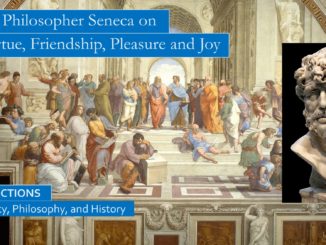
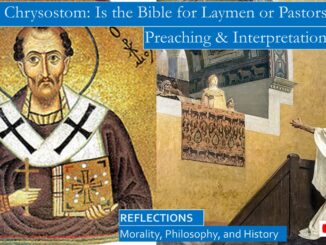
Be the first to comment